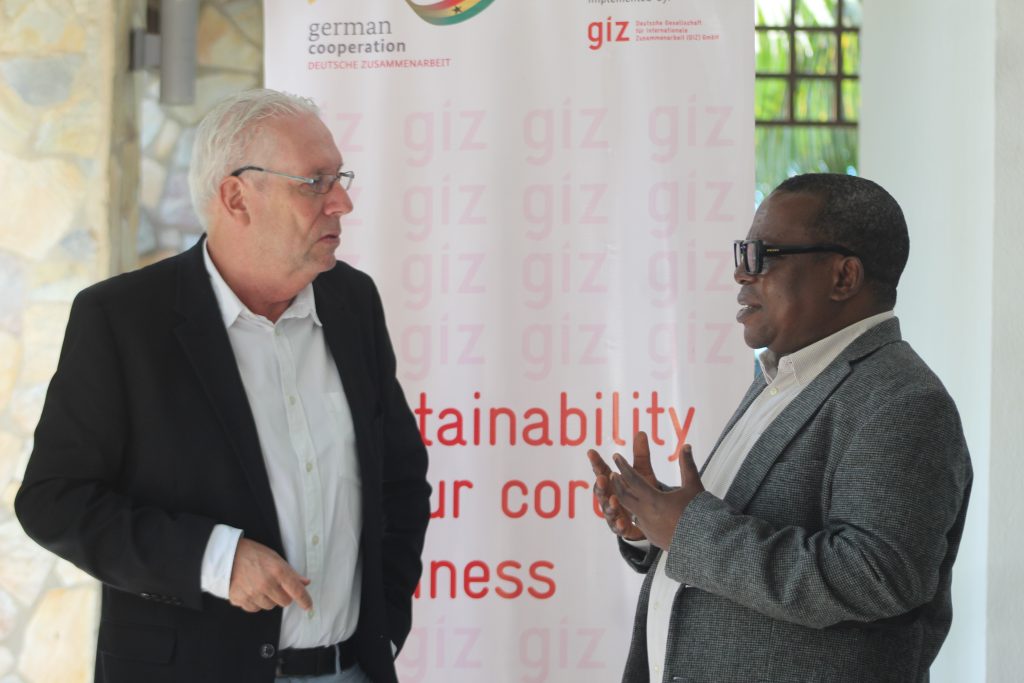By Francis Ntow/Dorcas Stephens
Accra, Nov 7, GNA – Over one million Ghanaians have benefited from two key interventions designed to equip them with the necessary knowledge and skills to manage the impacts of pandemics on their professional, personal, and family lives.
A total of 875,336 people were reached through the “Pandemic Management in Catchment Communities in Times of COVID-19 and Beyond” module, while another 275,747 benefitted from the “Comprehensive Pandemic Management for Employees, Families, and Communities” module.
This was disclosed during the close-out ceremony of the three-year programme, which spanned seven regions of the country.
The event took place in Accra on Thursday.
The initiative was funded through the develoPPP programme by the German Federal Ministry for Economic Cooperation and Development (BMZ) and implemented by Deutsche Gesellschaft für Internationale Zusammenarbeit (GIZ) GmbH in collaboration with nine private sector partners.
Speaking to the media, Dr. Holger Till, the Team Lead for the develoPPP Ghana project at GIZ, credited the programme’s success to the strong public-private partnerships formed between all stakeholders involved.
“The key highlights we’ve seen is the impressive number of people reached. More than one million people reached in the last three years and looking at their health outcomes, which really improved,” he said.
Dr. Till stated that the initiative also included screenings for diseases such as hypertension, diabetes, stroke, and other cardiac issues, as well as cervical and breast cancer.
As a result, awareness of these health conditions increased by over 33 per cent.
“A healthy worker is a productive worker.” He explained that the programme focused on improving the well-being of employees, their families, and communities,” he emphasized.
Dr. Till also called for stronger collaboration among stakeholders to expand the initiative’s impact.
“Working together with the private and public sectors, civil society, and development partners is key to our success,” he said.
Professor Julius Fobil, Director of the Africa Centre for Geo-Health at the University of Ghana, noted that the initiative successfully leveraged partnerships with community-focused organizations, local businesses, and academic institutions.
He said the collaborative approach empowered residents with practical knowledge on hygiene, symptom identification, and appropriate response actions, and laid a strong foundation for public health and resilience in the community.
“We have set the foundation for escalation. We’ve built community trust, mobilised, and taught people skills as well as how to identify key symptoms of health threats.
“The partnership we’ve established will remain integral to sustained resilience. Our shared responsibility is to maintain and build upon this foundation, working together and across sectors to ensure preparedness and support for all,” Prof Fobil said.

Ms. Jennifer Abena Yawson, a health practitioner from Obuasi, shared that through the training provided by the initiative, her understanding of cervical cancer and other diseases had significantly increased.
“Before the training, my knowledge was low but now I can say I am a cervical cancer advocate. We have a cervical cancer team in Obuasi, and we are proud to say that we are cervical cancer advocates,” she said.
“Through the initiative, I have learnt to manage my stress and to give the best of care to clients, increasing the attendance at the Out-Patient Department (OPD) on a daily basis,” Ms. Martha Agbasi, another beneficiary, said.
Ms. Agnes Amponsah, a beneficiary from Golden Exotics, expressed that the program had equipped her with valuable financial literacy skills that would help and other women in the community.
“With the lessons learnt from the market survey, savings, and management sessions, I have been able to save and complete a project I started… I look forward to another initiative to help others as it has me,” she said.
GNA